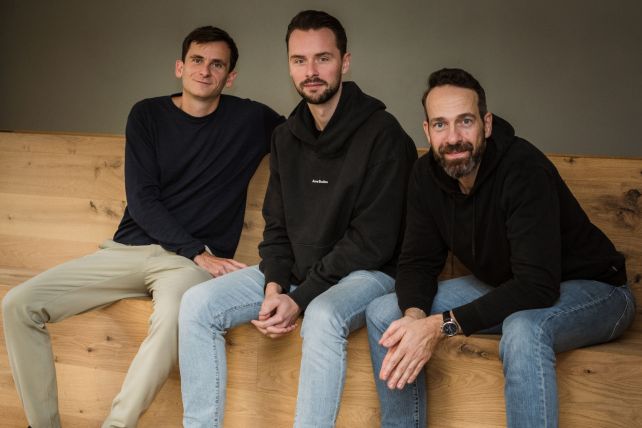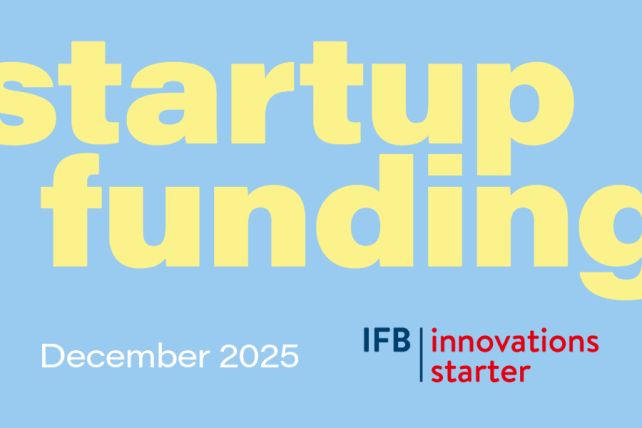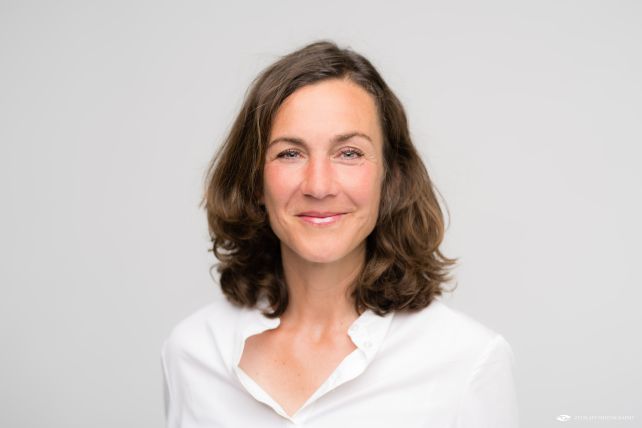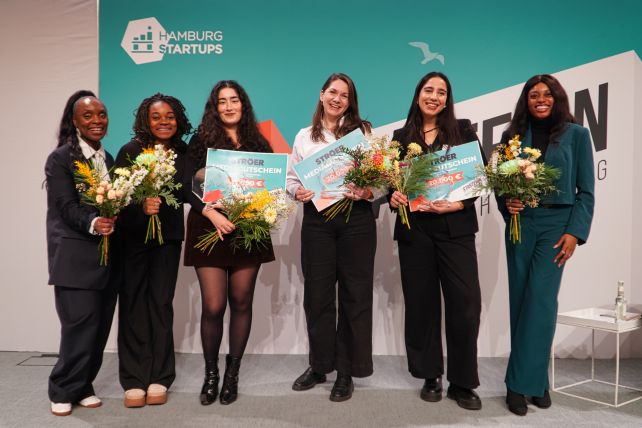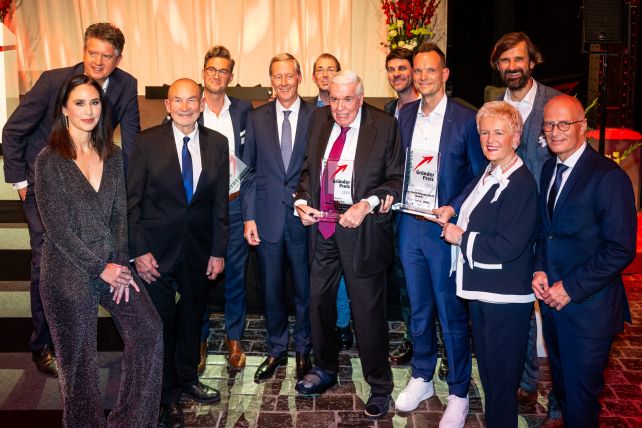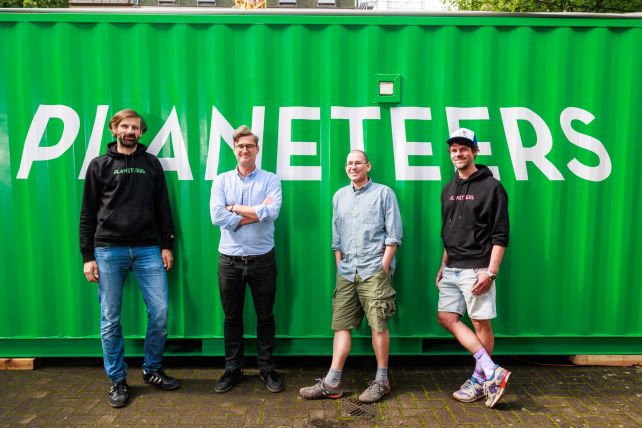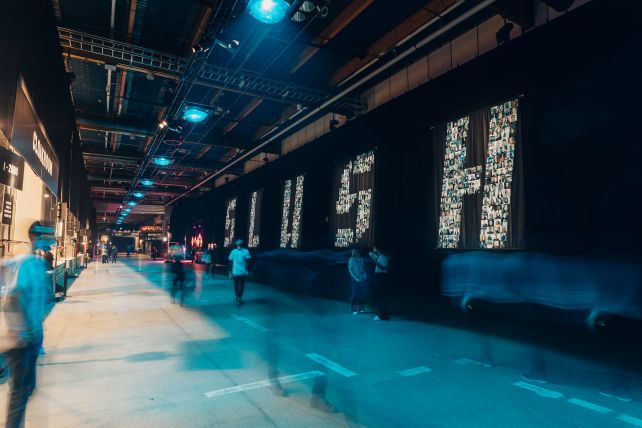Planeteers brings CO2 from the air into the sea
The Hamburg-based startup Planeteers captures CO2 where it is produced in large quantities and binds it in seawater for a long time. This contribution to climate protection was rewarded with a financing round in the millions and a prestigious startup prize in 2024.
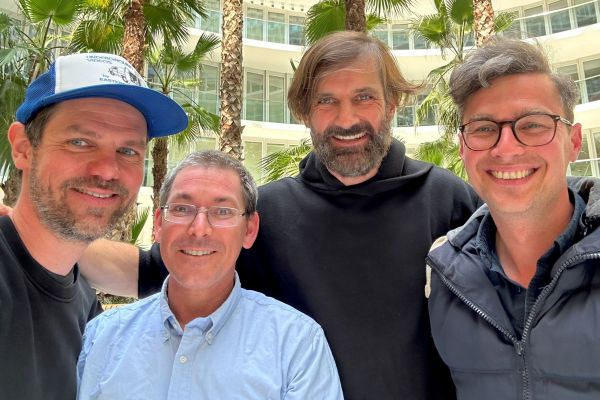
From scientist to entrepreneur because of the family
Together, the founders of Planeteers have nine children. Giving them a secure future is certainly one of the motives that keeps them going. Florian Brinkmann, for example, has virtually reinvented himself in the course of his career and has gone from scientist to entrepreneur. As a geologist, he spent two years on a research ship in New Zealand, where he was already engaged in climate change. He then worked for Deutsche Erdöl AG (DEA) for more than seven years, including on a project to store carbon dioxide and in Turkmenistan in Central Asia.
His wife, whom he had met in New Zealand, was unable to obtain a visa for the country. Brinkmann began studying business administration at WHU - Otto Beisheim School of Management so that he could set up his own business and stay in his home city of Hamburg instead of traveling the world. He graduated in 2017 and was one of the founders of VIMATO in 2018. The startup, which focused on influencer marketing, was one of the first to receive funding from IFB Innovationsstarter GmbH's InnoFounder programme. Like two of Brinkmann's other startup projects, it did not succeed in the long term, but the experience gained during this time was still valuable to him.
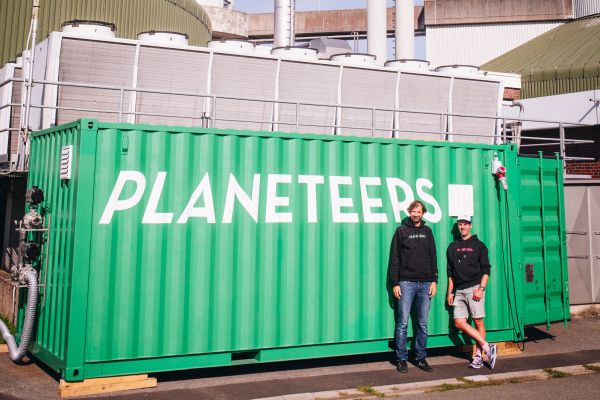
Many roads led to Planeteers
Florian Birner was luckier with his first startup. meevo Healthcare GmbH and its brand craftsoles for orthopaedic insoles still exist today. He also studied at WHU, where he met his namesake. Previously, the electrical engineering graduate had worked for Bosch and Linde. There, he was responsible for the construction of large-scale plants worth billions worldwide. An expertise that benefits him at Planeteers.
The story of industrial engineer Frank Rattay has some parallels to the story of the other two. He also conducted business for large companies for many years, with a focus on mobility. He spent ten years working for the management consultancy Kearney for clients in the automotive industry and twelve for Airbus in management positions. He also aspired to be self-employed at some point and did not achieve the breakthrough he had hoped for with his first startup infresh and a machine for the automated preparation of meals. In retrospect, a parents' evening at which he met Florian Brinkmann was more groundbreaking.

A natural process as a basis for work
Prof. Dr. Jens Harmann is the only member of the founding quartet of Planeteers with no entrepreneurial experience, but all the more scientific know-how. Among other things, he teaches aquatic geochemistry at the University of Hamburg, which is ideal for the ideas and plans of the other three founders. The four first met for a coffee in Hamburg's Grindel district in the summer of 2022, and Planeteers was officially founded in December.
The startup's contribution to combating climate change and reducing CO2 emissions is based on a natural process, the weathering of limestone. In this process, atmospheric CO2 reacts with rainwater (H2O) to form carbonic acid (H2CO3), which decomposes limestone (CaCO3) on the earth's surface. Bicarbonate (HCO3-) is formed. Rivers transport it into the oceans, which represent the largest carbon reservoir on our planet, where it is stored for well over 10,000 years. This reaction takes place in nature constantly, everywhere and on a large scale. The only catch: this process takes a very long time, stretching over a period of several thousand years.
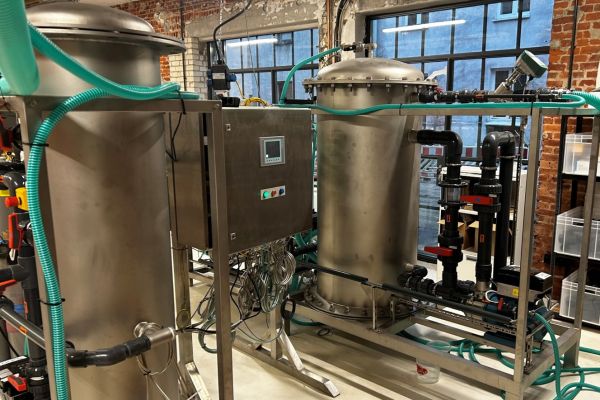
An appropriate start in a backyard
Obviously, this is not an option in the fight against global warming. The challenge was therefore to shorten the process to just a few minutes. The technology for this was basically available, it just had to come out of academia and into the startup world. The basic principle is to pulverise the limestone and thus create significantly more surface area for the chemical reaction. Initial trials with a laboratory reactor in the basement proved successful. Now something was on the agenda that is always in demand with startups: scaling.
To this end, the team built a plant in a backyard garage in the Eimsbüttel district with a capacity suitable for large quantities of bound CO2 that fits into a standard commercial container. The project began with detailed operational planning with appropriate design drawings, then the individual components required were defined. 80 % of these are available on the open market, 20 % were built in-house or developed further. There is a practical reason for opting for the container format: the systems should be easy to transport so that they can be set up directly at locations where large quantities of CO2 are produced, such as power plants and factories.


2024 was a successful year for Planeteers
These CO2 emitters must be located directly next to a body of water, ideally a river. The water is extracted from there and returned enriched with bicarbonate. Now you could come up with the idea of selling the resulting “mineral water” as such. However, it is much better off in the sea and also prevents acidification, which is harmful to marine fauna.
The year 2024 brought a breakthrough and a series of successes for Planeteers. The first prototype with a capacity of 60 tons of CO2 per year already proved its suitability for practical use at a biogas plant. Financial progress was also made. In the summer, a mid-seven-figure sum was raised in a seed financing round. Participants included BonVenture, the Smart Energy Innovationsfonds of Energy 360° AG and ClimaNow. The Hamburger Gründerpreis (Hamburg Founder's Award) in the startup category attracted a great deal of media attention in September. By the way, the team did not have to apply for the award. They received an invitation at short notice, pitched in the morning and were accepted in the evening.

A major contribution to climate protection from Hamburg
The course has thus been set for a successful future and the goals are correspondingly ambitious. The next reactor model with an annual capacity of 1,000 tons of CO2 should be completed by 2025 and then ready for the market. The demand is definitely there; decarbonization pays off for companies through carbon credits, among other things. By the middle of the century, Planeteers wants to bind one gigaton of CO2 per year, that is one billion tons. For comparison: according to the Federal Statistical Office, global CO2 emissions in 2023 were 39 gigatons.
So Planeteers alone cannot solve the CO2 problem, but it can at least make an important contribution. The team around the four founders would therefore like to see even more entrepreneurs seize the opportunity and combine climate protection with economic success.
-

How to found a successful startup
Are you thinking about founding a company yourself? Then you should put your problem-solving approach to the test. For a startup to be successful, it must be open to change. Here is an overview of the most important steps on the way to your own company and the institutions in Hamburg that can support you.
-

Find the right legal form for your startup
Which legal form is most suitable for a startup depends on many factors. Founders should think carefully about where they want to go right from the start, as a change is possible but involves a lot of effort. In this article, you will learn about the advantages and disadvantages of each legal form.
-

Working space for startups
Looking for a temporary office for yourself and your team? Then discover Hamburg’s diverse coworking offers: In addition to flexible workspaces for a day, coworking spaces in Hamburg also provide office space for entire teams as well as meeting rooms.



